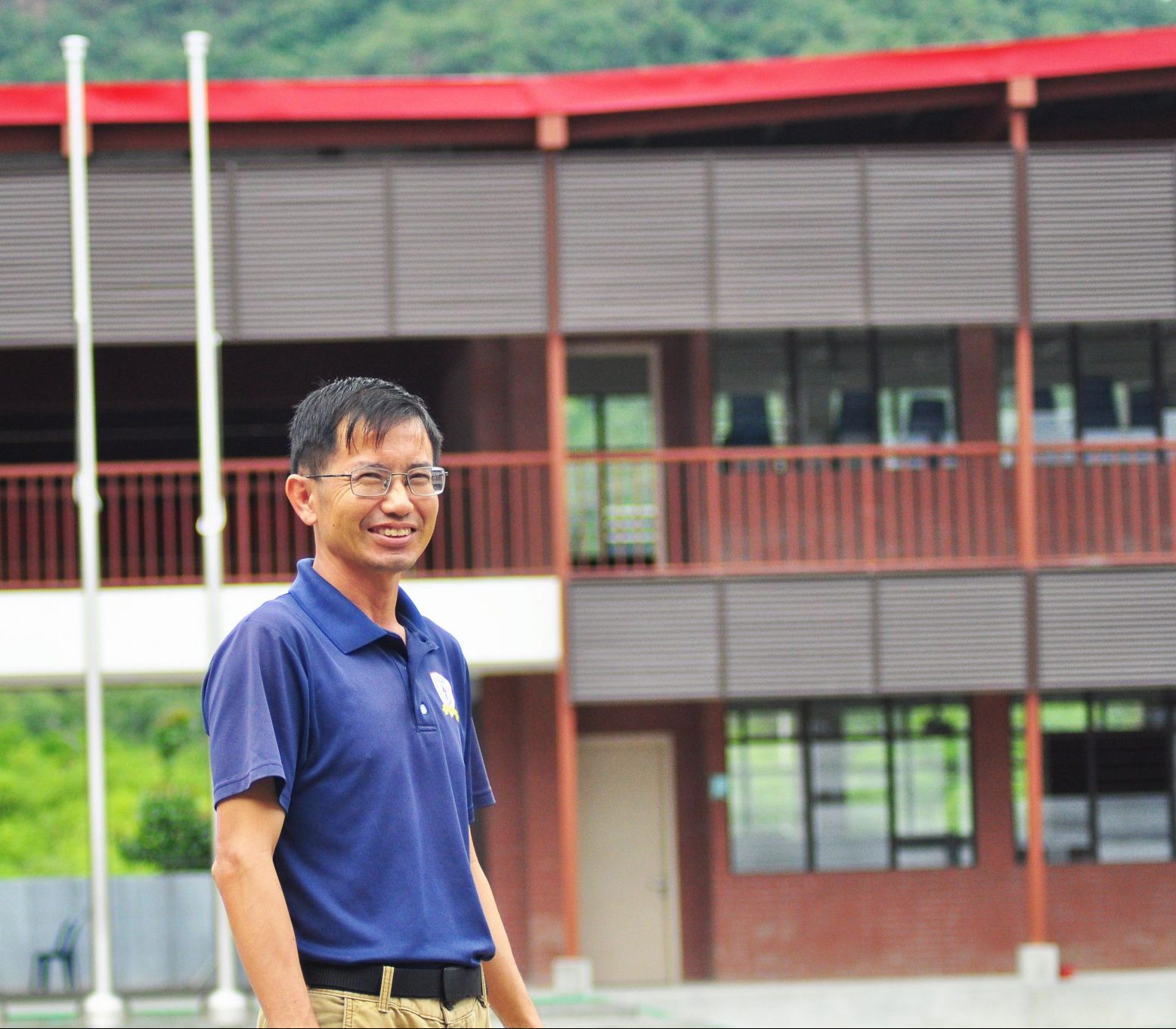Through the floodwaters of Timor-Leste: Reflections in the aftermath of Cyclone Seroja
Ting Siew Lee // April 13, 2021, 6:33 pm
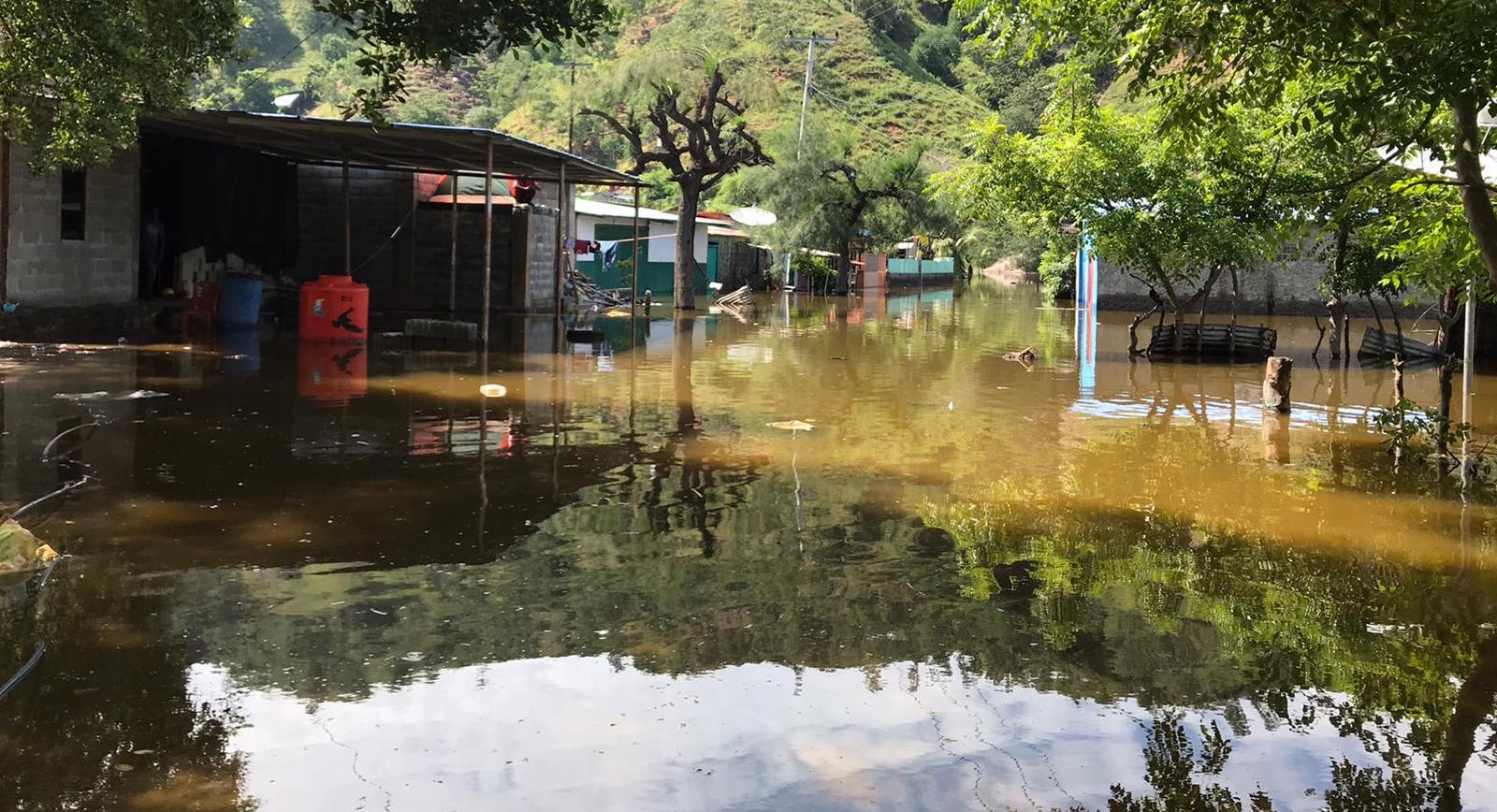
In the early hours of Easter Sunday, parts of Indonesia and Timor-Leste were ravaged by Tropical Cyclone Seroja. Homes were washed away, infrastructure was destroyed and thousands fled to evacuation centres across Dili, the capital of Timor-Leste.
Ting Siew Lee, executive director of Cocoon, has lived in Dili for 14 years. She shares her firsthand experience of the flood and this personal reflection on loss, hope and thankfulness.
It rained almost non-stop in Dili for two days preceding the storm. As the downpour intensified from Saturday night into Sunday morning, I was worried sick, unable to sleep.
From around two o’clock on Sunday morning, the rain lashed down on Dili with increasing fury. Before long, the power went out.
I saw the ferocious river gushing over the bridge, like a fountain gone wild.
On and on, hour after hour, the roar of the rain crashing on our zinc roofs echoed through our homes. From past experience, I knew that rain of this intensity and duration would cause catastrophic flooding.
As day broke, I braced myself for news of widespread carnage across Dili.
My house is on higher ground and faces away from the flow of stormwater, so I was safe. I live near a canal which I knew would be a raging river impossible to cross at the height of the storm. Memories of the last time I tried to drive my trusty Hilux out during a torrential downpour still remain fresh in my mind.
As I turned the corner, I saw the ferocious river gushing over the bridge, like a fountain gone wild.
I turned the car around and headed home quickly, fully aware that if the car stalled in the strong currents, I would be trapped in the vehicle.
Knee-high floodwaters
Eventually, I got news from the first responders that floodwaters up to knee height had swept into the Cocoon compound.
Two of our team members elevated as many things as they could and left. There was nothing more anyone could do until the floodwaters subsided.
We decided to wait till the next day to start cleaning up.
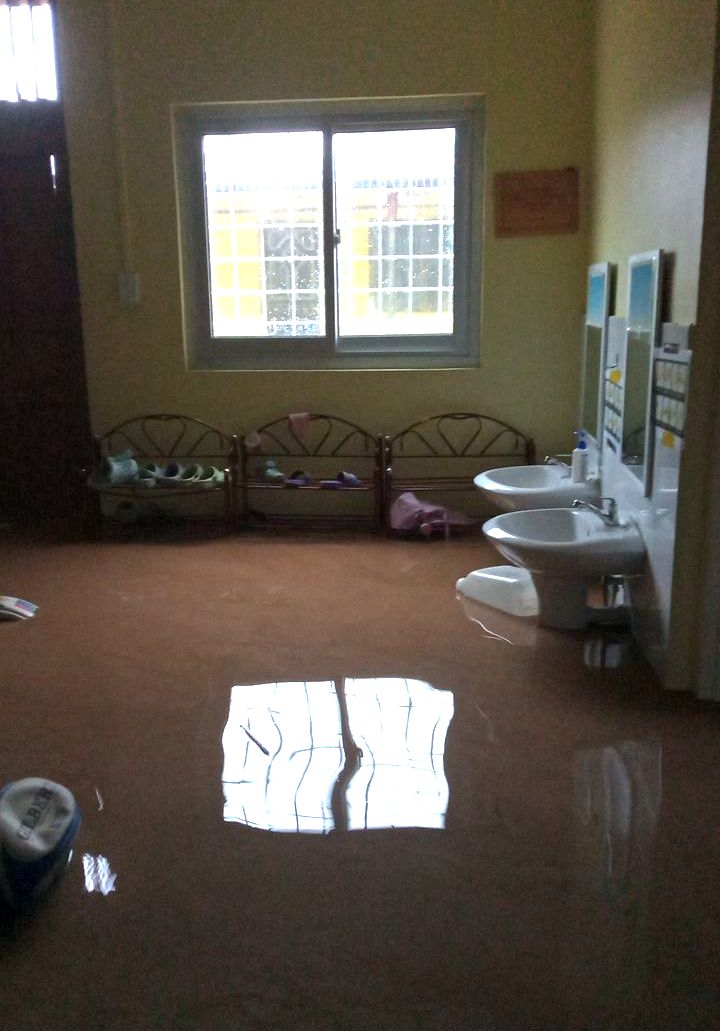
The first responders to Cocoon arrived to knee-deep floodwaters inside the school, early on Sunday morning. Despite having elevated the driveway and gate in 2019 as flood-mitigation efforts, the amount of rainfall on Easter Sunday caused the road outside to turn into a river and stormwater entered the compound. Photo by Cocoon.
Meanwhile, horrific images and videos of flood damage poured into our social media feeds. The missionaries chat group buzzed non-stop with latest updates from across Dili all day.
We decided we would work quietly, channeling donations to Timorese families we personally knew who were most affected.
We quickly reached out to our staff and preschool families. Of the 70 families in our preschool, we were able to contact over 60 of them in one day.
We identified those who had suffered severe loss and over the next few days, began visiting them to disburse aid, as the first donations started to trickle in from friends back home.
One Cocoon staff member also suffered great loss, as floodwaters gushed into her house, destroying property and sweeping away construction material she had stored up to finish constructing her house.
Crisis relief is a complex operation, and we are not trained in this area.
But blessed as we are with strong relationships with Timorese families and youth, a competent and God-fearing staff team, and faithful friends from Singapore, Cocoon is able to ensure accurate verification of the needs on the ground and a high degree of accountability.
This is the aftermath of the flooding that hit a student’s family. The neighbourhood and the inside of the house was caked with thick mud five days after the flood.
We decided we would work quietly, behind the scenes, channeling donations to Timorese families we personally knew who were most affected. As the co-founder and director of the ministry, I stayed away from the limelight, letting my local leaders front our humble efforts at flood relief.
A few days ago, my co-worker, Li Shan, shared her observations of how our Timorese staff have changed with each flood we have experienced. I blurted out at one point, “A crisis is meant to change you.”
Immediately, I was struck by the truth of the words that I uttered without forethought.
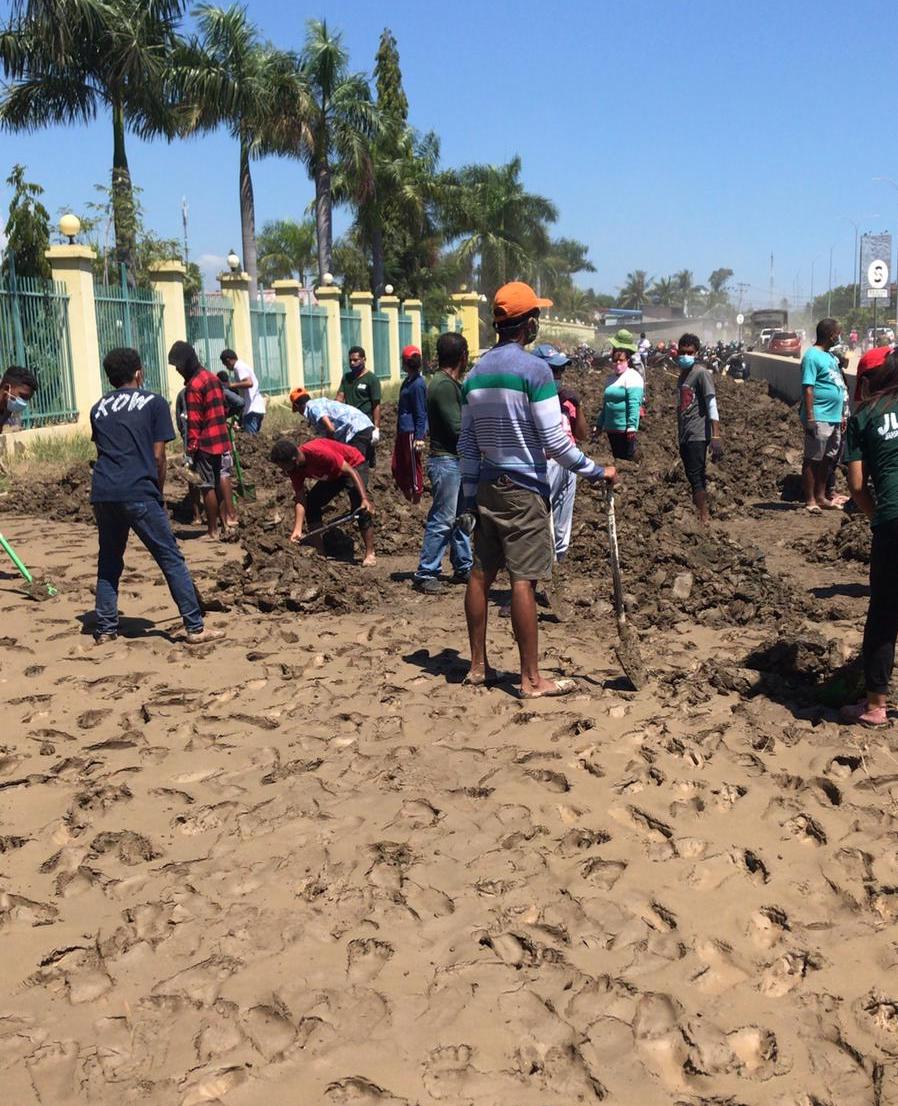
Churches have sprung into action to help flood victims. Youth from different churches came together to clean up the debris outside the Presidential Office in Dili city, as well as to pray for the nation. Photo by Dawn Tay.
Today, I think about my own declaration that a crisis is meant to change us. How have my firsthand experiences of floods in Dili changed me?
An awakening
First, I have learnt to deal with loss.
It is hard to describe the rush of emotions one feels in the aftermath of a flood, as one tries to take stock of the damage. There is often a lot of regret. “I should have kept this on higher ground”, “I could have given this away to someone who could have used it”.
There is also sadness at my failures in stewardship, as I watch flood-damaged items get carted to the dump.
All the things that you and I toil for, worry about, delight in and fuss over will be gone, sooner or later.
But most of all, there is an awakening, the sort that sneaks up on you and then hits you right in the gut.
It is an awakening to the truth that everything that my eyes can see and my hands can grasp, is not safe from the ravages of time and the destruction of the elements. This world so full of shiny toys will all be gone, one day, one way or another.
All the things that you and I toil for, worry about, delight in and fuss over will be gone, sooner or later.
This is why Jesus calls us to store up our treasures in Heaven. From being a verse on a page of the Bible, this has become a living reality seared into my consciousness.
Never meant to last
Intertwined with this profound realisation that all the material possessions of this life were never meant to last is a growing relief that I do not yet possess my full reward.
I repent for all the times that I was ever impatient, or discouraged by the lack of tangible return on investment for all my years of toil for the Kingdom.
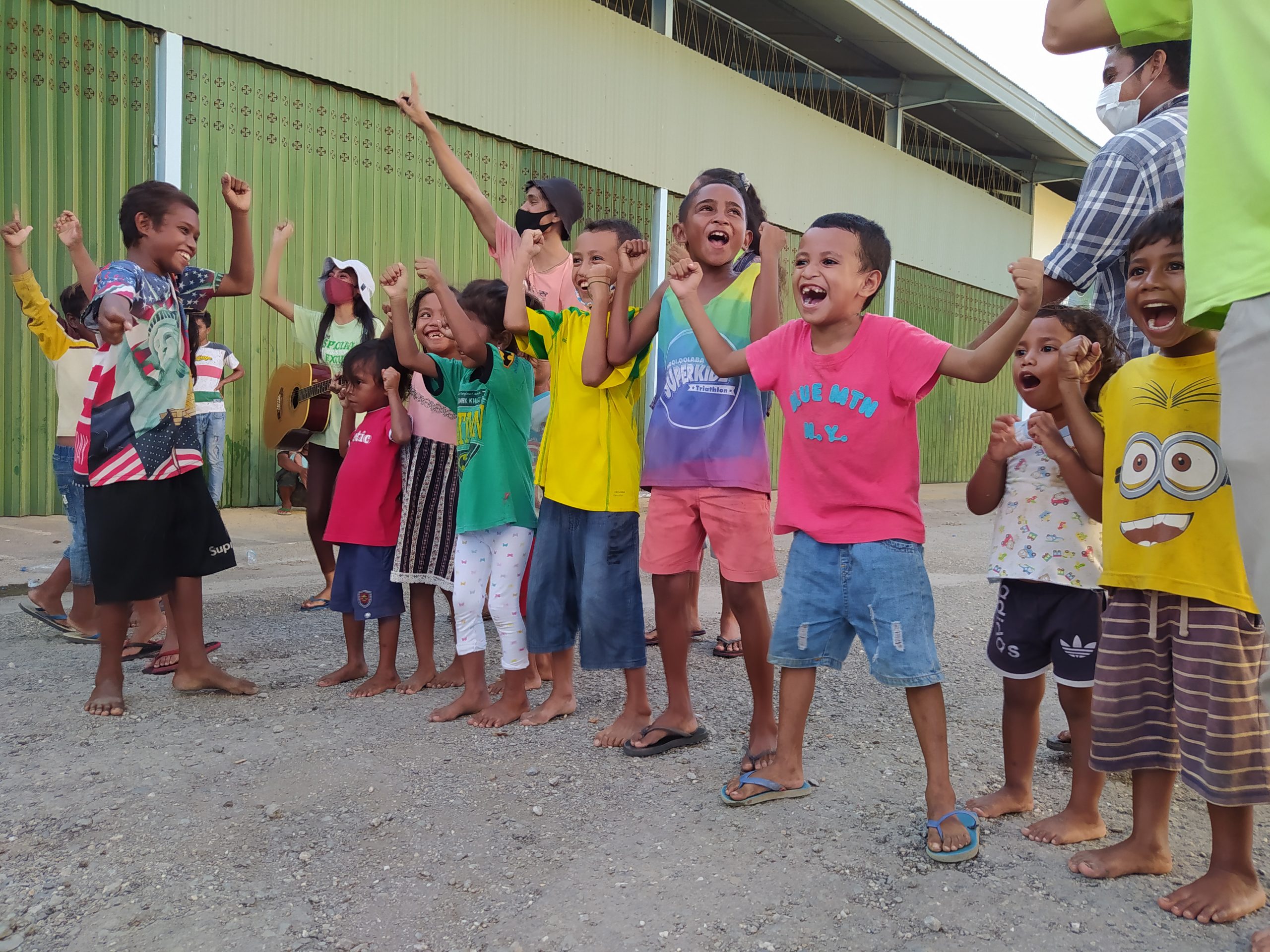
Cocoon youth leading children at an evacuation centre in a round of games. About 80 families remain here, unable to go home. Photo by Cocoon.
Ironically, the muddy deluge of flood waters has cleared my spiritual vision.
“Ironically, the muddy deluge of flood waters has cleared my spiritual vision.”
It is a mark of God’s infinite wisdom and grace that we do not receive the full reward of our labours in this life and in this world.
You see, on this side of eternity, there simply is no safe place to keep the glorious reward that the good Father and just Judge has for us.
If I were to receive my reward now, it would not be safe from wear and tear, and probably be swept away by the next flood. Shudder. Far better to labour now, with quietness, patience and hope, trusting that Someone is able to keep my full reward safe for eternity, when I will dwell in perfect safety.
One day, I shall receive and enjoy my reward. I do not want it now, thank you very much.
What are you thankful for?
In the meantime, the words of a little Timorese girl whom we met at an evacuation centre ring in my head. A group of Cocoon youth ran a children’s programme there, exactly one week after the flood hit.
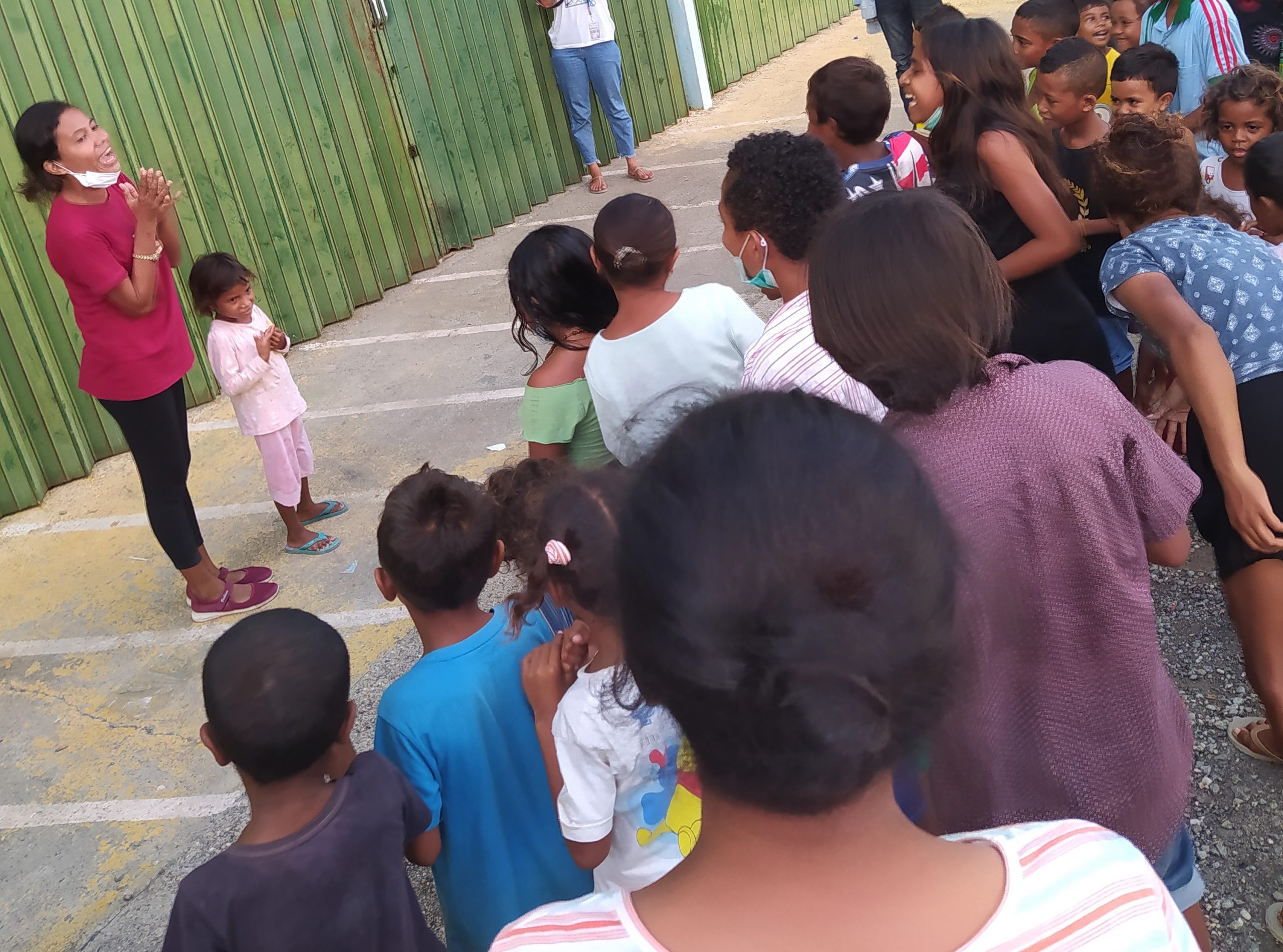
What are you thankful for? “Rice,” said this little girl, a one-word answer that cut to our hearts last Sunday, exactly one week after the floods hit Timor-Leste.
About 80 families remain at this particular evacuation centre. Many have gone home. The ones who are still there have probably suffered severe loss.
The emcee began the programme by posing a question to the small crowd of children who had gathered around us.
“This one-word answer has taught me more about thankfulness, than a thousand eloquent sermons.”
“What are you thankful for?” she asked the children.
A small girl raised her hand. She stepped forward, and said just one word:
“Rice.”
This one-word answer has taught me more about thankfulness, than a thousand eloquent sermons.
A homeless little Timorese girl is thankful for rice to eat, provided by an army of volunteers who are cooking for the displaced.
May we too, learn to be thankful for what we have, while looking forward to the glorious reward promised to those who endure to the very end.
To find out more about how you can help, e-mail Ting Siew Lee, at Cocoon ([email protected]), or Pastor Selvam Muttu, at Transformation Alliance ([email protected]), for the latest updates.
To donate towards relief efforts, Singapore Red Cross is currently accepting cash or cheque donations between 10am and 5pm via walk-in to their HQ at 15 Penang Lane, Red Cross House, Singapore 238486.
Would you pray for Timor-Leste?
- Wisdom and integrity for the government in leading the massive relief and development effort in the weeks and months ahead.
- For churches, Christian ministries and missionaries who have suffered severe loss to experience restoration and encouragement from the Lord.
- For the Timorese church to arise and shine, doing its part in national development and transformation for the glory of God.
RELATED STORIES:
https://thir.st/blog/wading-in-waist-deep-muddy-water-they-sang-that-god-was-king-over-the-flood/
We are an independent, non-profit organisation that relies on the generosity of our readers, such as yourself, to continue serving the kingdom. Every dollar donated goes directly back into our editorial coverage.
Would you consider partnering with us in our kingdom work by supporting us financially, either as a one-off donation, or a recurring pledge?
Support Salt&Light
